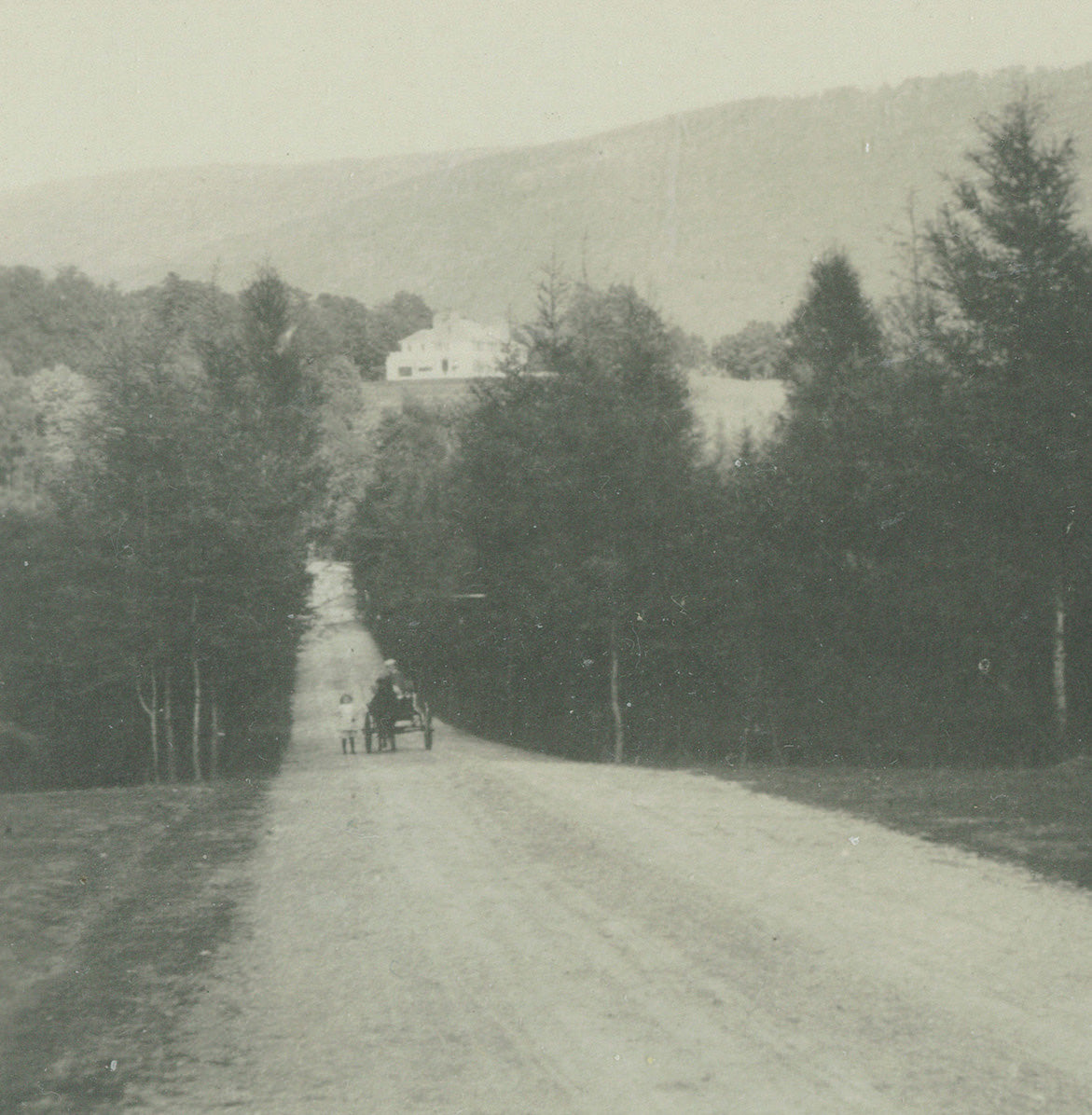The Lincoln Family Home
Robert and Mary’s home sits atop a forested hill and overlooks a dene, or valley with a stream, between the Taconic and Green Mountains. Robert was the president of the Pullman Company when he built what he called his “ancestral home.” Today the house looks much as it did in Robert and Mary’s day, with Lincoln and Harlan family furnishings.
Robert hired the Boston architectural firm Shepley, Rutan, and Coolidge to design Hildene. Boston builder Ira G. Hersey constructed the 24-room Georgian revival mansion with electricity, telephone service, hot-air heating, and an enunciator system that allowed the Lincolns to call their staff wherever they might be in the house. Hersey also built a carriage barn and outbuildings.
Frederick Todd, an apprentice of renowned landscape designer Frederick Law Olmsted, sculpted the Hildene grounds and cultivated garden beds. He designed the cutting and kitchen gardens for flowers, vegetables, and herbs, and added 300 varieties of trees and flowering bushes to the property. He also landscaped a reflecting pond where the Lincoln grandchildren sailed pond boats.
Robert and Mary moved into their new summer home on June 20, 1905, when Robert was sixty-two and Mary fifty-nine, they had been married for thirty-seven years. They usually spent from May until October at Hildene, but in some years, they arrived as early as March or left as late as February. “We are all well and happy up here in the mountains,” Robert once wrote a friend, “and all dread being driven away by the cold winter to come.”


The Formal Garden
The garden was designed by President Lincoln’s granddaughter, Jessie Lincoln, for her mother, Mary Harlan Lincoln in 1908. Archival documents suggest that Robert Lincoln collaborated with his daughter in bringing the garden to life. The pattern is that of a stained glass window; the privet representing the leading, the flowers the glass. As a young woman, Jessie had seen such windows in the cathedrals of Europe as well as the parterre design in gardens.



